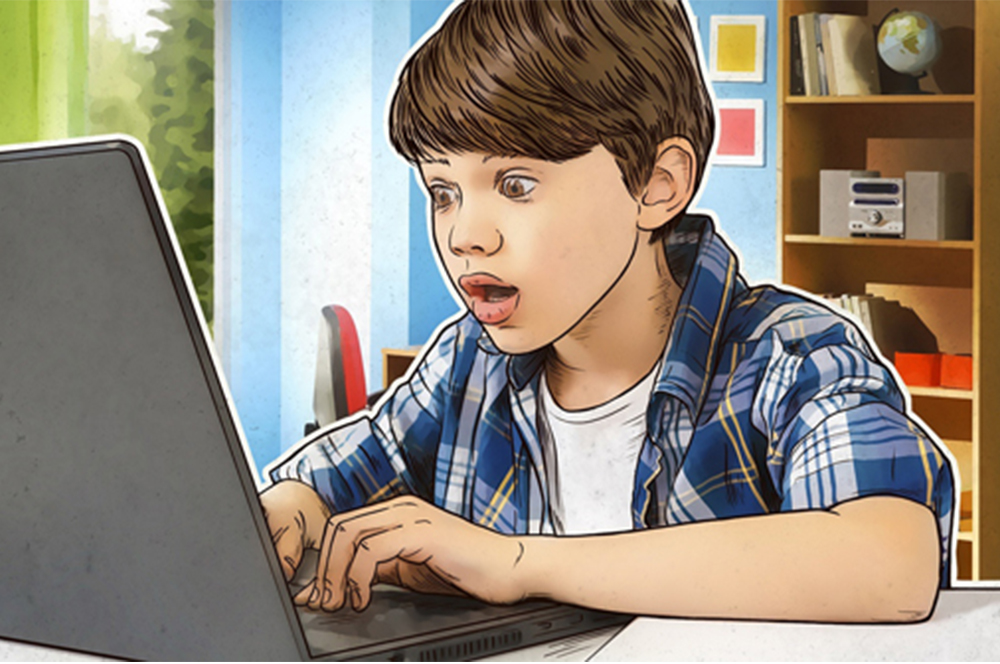Ensuring that children are safe from inappropriate content that they might see online is one of the challenges parents face.
To give adult guardians a better idea what kids are searching online, cybersecurity firm Kaspersky Lab released its latest report on the online activities of children. Using anonymized statistics from its flagship solutions and modules with child protection features, namely Parental Control and Safe Kids, Kaspersky Lab discovered video and audio category is the most regularly “googled” by children, accounting for 17 percent of searches over the last six months.
Under the video and audio category are requests related to any video content, streaming services, video bloggers, television series, and movies.
The second and third most searched online are translation (14 percent) and communication (10 percent) websites, respectively. Interestingly, games websites sit in fourth place, generating only 9 percent of the total search requests.
The cybersecurity firm also found out a clear language difference for search requests. For instance, video and music websites are typically searched in English.
Spanish-speaking kids, on the other hand, carry out more requests for translation sites, while communication services are mostly searched by Russians. More than any other nationalities, Chinese-speaking children look for education services, while French-speaking kids are more interested in sports and games websites. In turn, German-speaking requests dominate in the “shopping” category. The leading number of search requests for porn are in Arabic, and for anime are in Japanese.
“Kids in different countries have different interests and online behaviors, but what links them all is their need to be protected online from potentially harmful content. Children looking for animated content could accidentally open a porn video. Or they could start searching for innocent videos and unintentionally end up on websites containing violent content, both of which could have a long-term impact on their impressionable and vulnerable minds,” says Anna Larkina, web-content analysis expert at Kaspersky Lab.
As well as analyzing searches, the report also looked into which websites children visit or attempt to visit that contain potentially harmful content, which falls under one of the 14 preset categories that can be blocked by the Parental Control module.
The data show that communication sites (such as social media, messengers, or emails) were the most popular pages visited by computers with parental controls switched on—with users visiting these sites in 60 percent of cases over the previous 12 months.
The second most popular category of websites visited by these users is “software, audio, and video” (22 percent). Alcohol, tobacco, and websites about narcotics (6 percent) is the third most searched on computers with child protection features.
“While it is important to trust your children and educate them about how to behave safely online, even your good advice cannot protect them from something unexpectedly showing up on the screen,” opines Larkina. “That’s why advanced security solutions are key to ensuring children have positive online experiences, rather than harmful ones.”
The Kaspersky Total Security and Kaspersky Internet Security consumer solutions include a Parental Control module to help adults protect their children against online threats and block sites or apps containing inappropriate content. Meanwhile, the Kaspersky Safe Kids solution allows parents to monitor what their children do, see, or search for online across all devices, including mobile devices.

